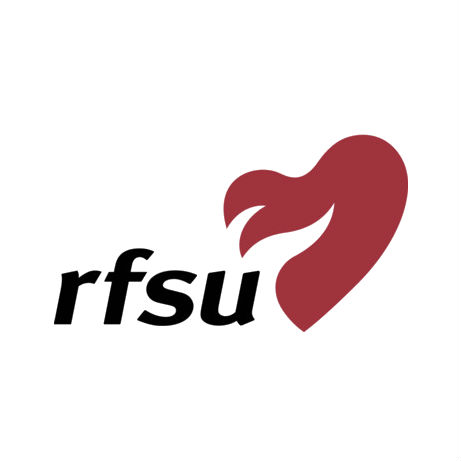

| 31 March 2016
Riksförbundet för Sexuell Upplysning - Sweden
Riksförbundet För Sexuell Upplysning (RFSU) has 17 local branches, 19 member organizations, 1 clinic and 1 'open house' youth clinic. RFSU works extensively in education, campaigning, advocacy, research, training, and in the international sexual and reproductive health and rights (SRHR) arena. The organization has been especially active in the field of counselling for people with learning difficulties, visual impairment and disability, and it runs courses for volunteers working with these groups. RFSU runs seminars for the general public on the pursuit of pleasure, gender roles and male and female language, and clinics for young men, who are generally thought to be overlooked when it comes to talking about their sexuality. These clinics are run by male staff and registered nurses. RFSU conducts outreach activities at summer seaside resorts, music festivals and other youth events. This work is carried out by trained peer educators and cover sexually transmitted infections (STIs) including HIV and AIDS, and other SRHR issues. The organization produces a quarterly bulletin which is widely read, especially by the media, and a periodical entitled `Reports on Sexuality and Reproduction'. RFSU's international activities include joint projects with the Swedish International Development Cooperation Agency (SIDA) in Tanzania andZambia, focused on the sexual and reproductive health (SRH) of young people. These projects aim to increase knowledge, to promote openness and acceptance of young peoples’ sexual activity, and to improve access to contraceptive services. Other international projects focus on communicating the Swedish experience of sex education, and on providing input into the development of family planning in Russia and the Baltic States. Contacts Website: http://www.rfsu.se/ Facebook: https://www.facebook.com/rfsu.se/ Twitter: https://twitter.com/RFSU

| 31 March 2016
Family Planning Association of India
Established in 1949, the Family Planning Association of India (FPAI) is a founding member of IPPF. Its work in sexual and reproductive health (SRH) covers safe motherhood and child survival, empowerment of women, male involvement, adolescent health and youth development. FPAI works closely with non-governmental organizations (NGOs) and the government. It runs 39 permanent clinics, 101 mobile facilities, and has a network of nearly 2,700 community-based distributors /services (CBDs/CBSs). It works with 563 private practitioners and 196 other agencies. In addition, FPAI operates 3 infertility clinics, a contraceptive retail sales programme, and a condom dispensing service. In total, FPAI operates over 4,000 service points. A community-centred approach is at the core of FPAI's work. Our programmes are designed to deliver improved health and standards of living, better decision-making, and greater self-reliance. It aims to enable men and women to form local voluntary groups to initiate action in communities. Work primarily focuses on under-served rural areas and urban slums. The organization exploits a variety of media to impart its message, including film, radio, newsletters, journals and other print materials, as part of a wide-ranging education programme addressing topics such as family planning, maternal and child health, the risks of unsafe abortion, infertility, the prevention of sexually transmitted infections (STIs) and counselling for newlyweds. FPAI encourages the empowerment of women through mahila mandals (women's groups), balwadis (nursery schools), and literacy and income generation programmes. It’s been addressing the concerns of young people in a holistic manner through 30 Sexuality Education, Counselling, Research, Training/Therapy (SECRT) Centres spread acrosss the country. The centres offer youth-friendly services that prepare young people for their future by building the confidence and self-esteem essential to forging healthy relationships. They also offer counselling and information on various developmental issues, including sex, coping with preer pressure, relationships, responsible sexual behaviour, marriage, parenthood, contraception and the prevention of STIs including HIV and AIDS. As an advocate, FPAI exerts influence through community representatives, through the media, and through representation on government bodies such as the Central Health and Welfare Council and Steering Committee on Population Education. Contacts Website: http://fpaindia.org/ Facebook: https://www.facebook.com/FPAI.national







